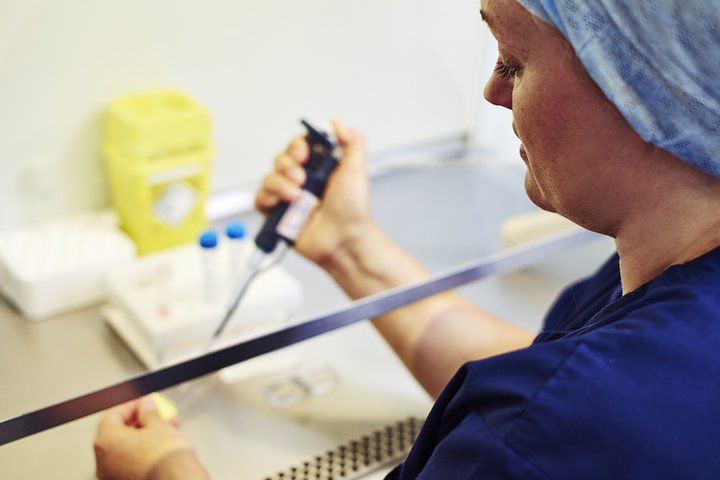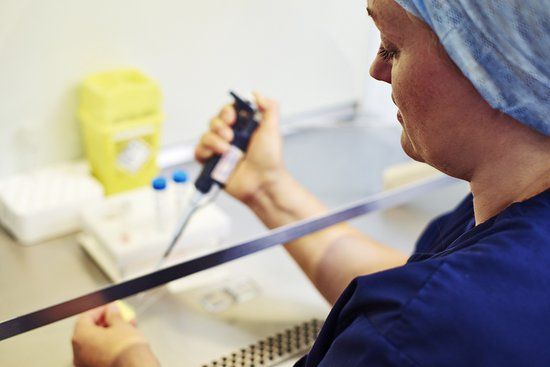
If you’re having fertility treatment, you need to be reassured that all the right tests and procedures have been carried out before you start your cycle.
Your initial tests are vital for your fertility consultant to establish the right course of action. Your unique results, along with your personal factors and circumstances, will form the basis of your treatment recommendation and individual treatment path.
At Manchester Fertility, your very first tests and scans mark the beginning of your journey, and are just as important as your course of treatment.
Our pre-treatment investigations are thorough and detailed, so you can be assured that when we recommend treatment, we are completely confident that it’s the best option for you with the highest chance of success.
When you come to us for help to have a baby and are accepted for treatment, your initial tests include:
Ultrasound scan
We carry out a scan in our clinic ultrasound room, to identify if there are any problems with your uterus, fallopian tubes or any scarring or adhesions which could be preventing natural conception or affect your chance of treatment success.
It’s also important that you’ve had a cervical smear test in the last three years, so that your cervix is healthy.
Infections screening
Both you and your partner are screened for any infectious diseases, including HIV and Hepatitis B and C. Female patients are also screened for Rubella and if you’re using donor sperm, Cytomegalovirus.
Blood count
You’re given a blood test for a full blood count but also to check your hormone levels, including your AMH (anti-Mullerian hormone) level, which is a good indicator of your ovarian reserve – the number of eggs you have remaining. Your AMH level helps us formulate the right amount of fertility medications to optimise your cycle.
Semen analysis
If you have a male partner, he provides us with a semen sample for us to analyse in our laboratory. An andrologist – a specialist in sperm and the factors which affect male fertility - will look at the sperm under the microscope to identify if there are any sperm disorders preventing conception, such as low sperm count, abnormally-shaped sperm, or poor sperm motility, which means the sperm cannot reach the egg.
SpermComet DNA testing
DNA damage is a hidden cause of male infertility. DNA damage in what appears to be healthy sperm can cause fewer eggs to be fertilised in treatment, embryos not developing as well as they should, lower pregnancy rates and even miscarriage.
Standard semen analysis testing does not detect the amount of DNA damage sperm have. If appropriate, at Manchester Fertility we can also test your partner’s sperm using SpermComet, the very latest test that detects the amount of DNA damage in each single sperm. Your test results will help predict which treatment is most likely to succeed. So it may be recommended that you go straight to ICSI treatment instead of IVF.
Your fertility consultant will explain all about our pre-treatment testing procedures to you at your first consultation. If you’d like the help of our specialists to start your family, call 0161 300 2737 or apply online.
Last updated: 18th August 2016








